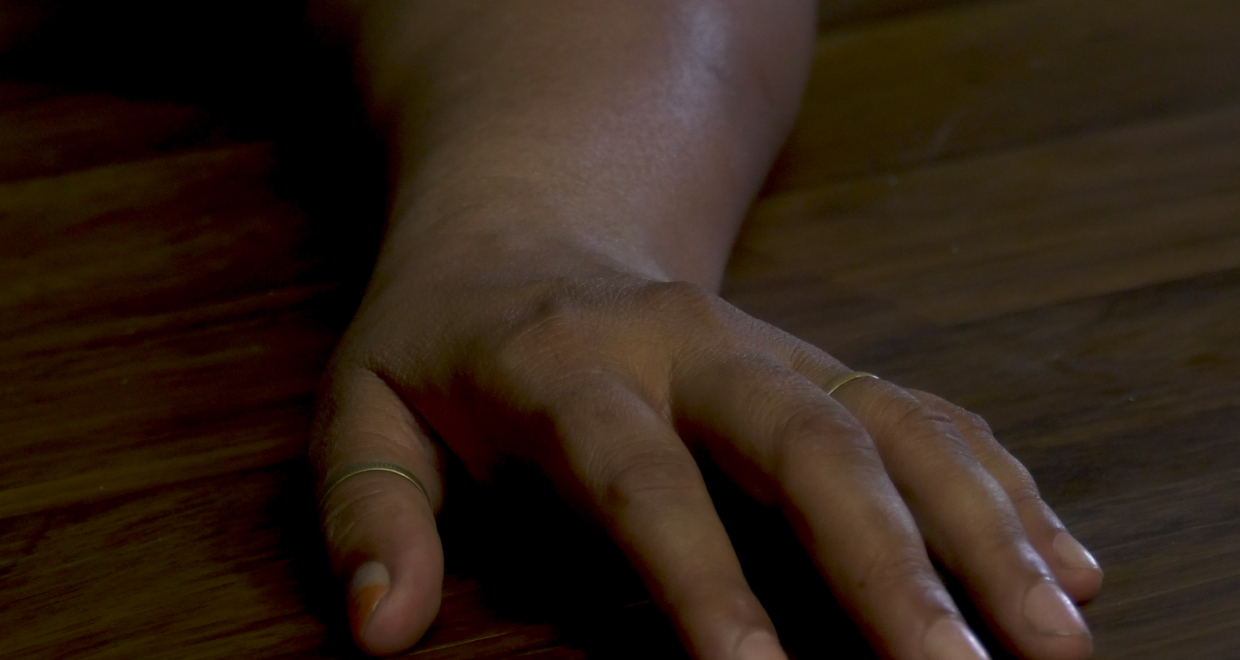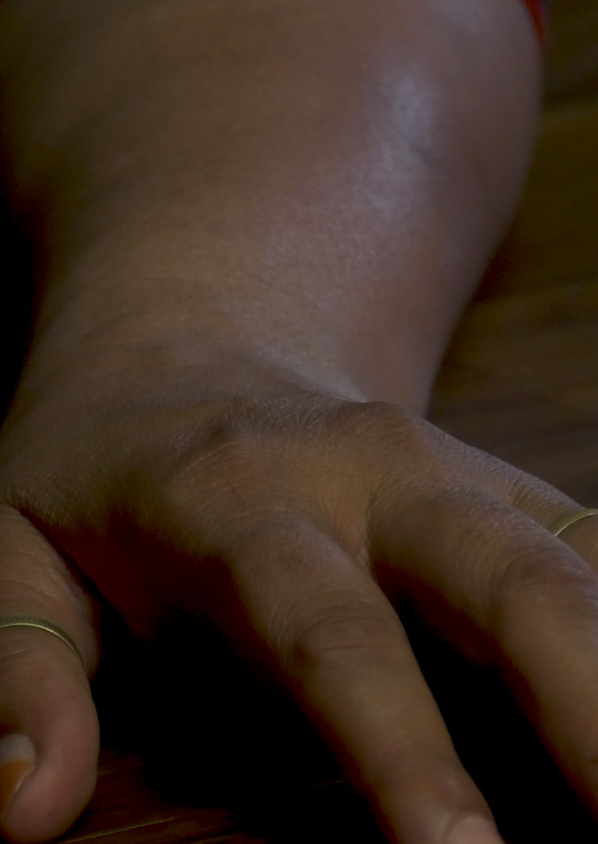SUNSETS, EVERYDAY
Video, 14’ 55’’
Courtesy the artist and Fondazione In Between Art Film
Commissioned and produced by In Between Art Film for the project Mascarilla 19 – Codes of Domestic Violence



Video, 14’ 55’’
Courtesy the artist and Fondazione In Between Art Film
Commissioned and produced by In Between Art Film for the project Mascarilla 19 – Codes of Domestic Violence
Basir Mahmood (b. 1985 in Lahore, based in Amsterdam), who originally trained as a sculptor, uses video and photography to reflect on the mechanisms involved in the construction of cinematic language and to explore the aesthetic and political aspects of everyday life.
Sunsets, everyday is the result of an investigation that the artist undertook of the process, both physical and cinematic, involved in creating images of domestic violence. During the lockdown, some victims courageously used social media to share photos of their faces, as a way of encouraging other women to report such crimes. The marks on their bodies were the only tangible proof of the blows and the pain they had suffered, and the artist took these as a point of departure for thinking about all the things that happen out of view.
Mahmood commissioned a production team in Lahore to create and film, in his absence, a repeated scene of domestic violence, based on his instructions and some reference images. While the main crew was busy with this task, two camera operators were asked to constantly film the entire process and the elements of the set, down to the last detail. This method of working from a distance, which Mahmood often employs, invites a reflection on the artist’s role and authorship, turning him into a witness and observer of his own work.
The process of staging violence is what generates the images on the screen, but the act itself is almost completely hidden from the viewer. We see only narrow closeups and small portions of women’s bodies. Rejecting spectacularization, the artist focuses instead on the cinematic process and the codes of its language. In this metacinema of violence, the characters are the technicians and crew members struggling with his exhausting demand that they repeat the scene for sixteen straight hours of shooting. The set itself is explored by the camera with a forensic gaze, and the objects that compose it are put on an equal footing with the people. Both are forced to witness to the violence enacted before them. The almost obsessive repetition of identical actions, like washing the floor, becomes a way of expressing the routine nature of violence. An act that is repeated with tragic continuity. Every day, as inevitable as the sunset.
Necessary cookies are absolutely essential for the website to function properly. This category only includes cookies that ensures basic functionalities and security features of the website. These cookies do not store any personal information.
Any cookies that may not be particularly necessary for the website to function and is used specifically to collect user personal data via analytics, ads, other embedded contents are termed as non-necessary cookies. It is mandatory to procure user consent prior to running these cookies on your website.